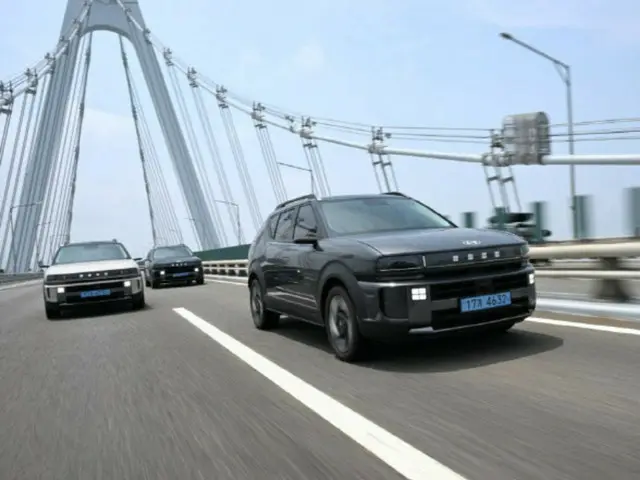But honestly, I was a little worried." (Nesso owner A, 30s) South Korea's Hyundai Motor has unveiled the new "Nesso" and is further solidifying its leadership in the hydrogen commercial vehicle market.
Nesso owners like Mr. A are very happy with the sleek design and improved vehicle performance that only hydrogen electric vehicles can offer.
However, they complain that the lack of charging stations makes it inconvenient to operate hydrogen vehicles. In fact, while the number of hydrogen vehicles has increased to 40,000, there is a severe shortage of charging stations nationwide.
According to the Hydrogen Economy General Information Portal on the 5th, the number of hydrogen vehicles registered in Japan this year was 39,140, a steady increase since 2018, when hydrogen vehicles first became widespread.
In 2020, the number of vehicles sold was 10,906, exceeding 10,000, and in 2021 it was 19,404, in 2022 it was 29,623, in 2023 it was 34,258, and in 2024 it was 3,000.
In 2024, the number of units sold reached 37,557, and this year the number is steadily increasing every year. This year, Hyundai Motor released the "The All New Nesso," which is the first full model change in seven years.
The Ministry of Environment announced the launch of the "New NEXO" and confirmed a subsidy of 721.8 billion won for the purchase of 11,000 passenger cars and 2,000 hydrogen buses, which will increase the number of hydrogen vehicles in use by 50%.
The new Nesso boasts a range of 720km, an output of 150kW, and a maximum torque of 350Nm, and its performance has been greatly improved, leading to increased satisfaction with hydrogen vehicles themselves, including fuel economy.
The problem is the severe lack of charging stations for hydrogen vehicles. According to the Ministry of Environment's "Pollution-Free Vehicle Integrated Portal," there are only 229 hydrogen vehicle charging stations nationwide, including Cheju Island.
This is about 1/400 of the 90,729 charging stations for electric vehicles. The cumulative number of registered electric vehicles in the first half of the year was about 775,000, far more than hydrogen vehicles.
One analysis suggests that for hydrogen vehicles to become as popular as electric vehicles, charging infrastructure must first be established.
The Ministry of Environment's goal for the spread of zero-emission vehicles (including passenger and commercial vehicles) by 2030 is
The target is 4.2 million electric vehicles and 300,000 hydrogen vehicles, but it is thought that it will be difficult to achieve this target under the current circumstances. Even if the national and local governments try to increase the number of hydrogen vehicles through public transportation such as hydrogen buses, there is a limit.
Therefore, a rapid expansion of hydrogen commercial vehicles is necessary. In order to increase the competitiveness of the hydrogen mobility industry against Japan and China, the most urgent task is to expand domestic infrastructure.
Even in Seoul and Gyeonggi Province, where charging stations are relatively well developed, it is difficult to charge a hydrogen vehicle. Mr. B, a Nesso owner living in Suwon, Gyeonggi Province, said, "I was planning to charge my hydrogen vehicle after work, but
When I opened the charging app, there were no charging stations nearby. The only ones I could go to were only open from 9 a.m. to 6 p.m., which is tough for an office worker," he said. "There are also many places in the capital area that are open from 10 p.m.
There are some places that are open until 10:00, but the charging fees are too high compared to other places,” he said. Experts also said that Hyundai Motor has completed the development of a “high-pressure mobile hydrogen charging station” and is working to expand infrastructure.
Professor Lee Ho-geun of the Department of Automotive Sciences at Daeduk University said, "The most important thing for popularizing hydrogen vehicles is to build infrastructure, but hydrogen refueling is also important."
"Safety regulations on charging stations and high costs make it difficult to expand charging stations in urban areas," he said. "Expanding hydrogen charging stations in urban areas requires absolute support from the government."
2025/08/06 09:53 KST
Copyrights(C) Edaily wowkorea.jp 88

